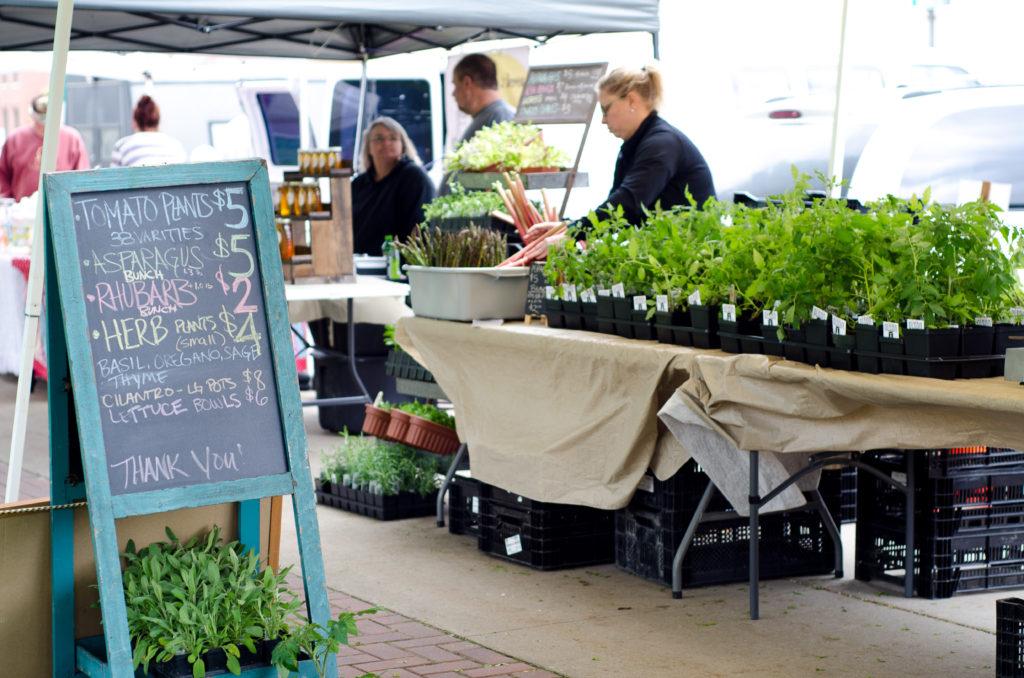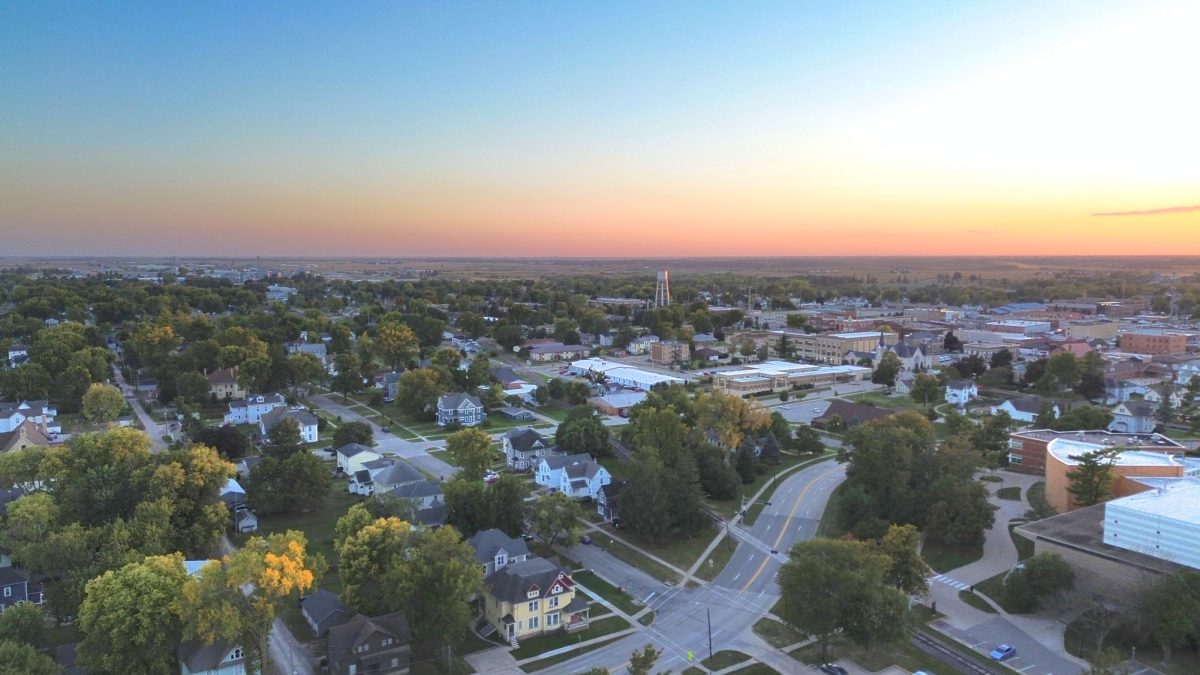Sponsored by the Center for Prairie Studies, the Local Foods Symposium ran from Oct. 29 to 31 with the intention of digging deeper into the challenges and possibilities of building a robust local food system in Grinnell.
Director of the Center for Prairie Studies, Professor Jon Andelson ’70, anthropology, helped organize the symposium. In the two decades that he has been working on local food issues in Grinnell, the number of food organizations have grown to include three CSA (Community Supported Agriculture) programs, Mid Iowa Community Action (MICA), the Giving Gardens, the Farm-to-Table online marketplace, Local Food Connection, the College Garden and a number of organic farms.
“We hope through the symposium to get even more people interested in the concept of local food, maybe more aware of some of the problems that industrial scale agriculture has and the ways in which local food can address some of those problems,” Andelson said.
Tommy Hexter ’21, co-founder of Farm House, was also involved in the organization of the symposium. Hexter saw the event as an opportunity to connect food groups in the community.
“One thing I’ve discovered is that there’s all these local foods actors, and for some reason there’s no communication between these groups at all. … [The symposium] is a place for them to come and talk through their ideas and brainstorm and form connections.”
The event kicked off Tuesday afternoon with a presentation by Alex Reich ’11, cofounder of MinuteEarth, an environmental science Youtube channel.
On Tuesday evening, local farmers Jordan Scheibel ’09 and Ann Brau, along with Assistant Director of Dining Services Laura Kaiser and Harriet Dickey-Chasins ’82, coordinator of an online marketplace Grinnell Farm-to-Table, gathered to discuss the current state of Grinnell’s local food economy.
On Wednesday afternoon, another panel addressed the challenges and solutions for strengthening the local foods system in Grinnell.
Panelist Andy Dunham, owner of Grinnell Heritage Farm, spoke on the many obstacles to organic food production in Iowa, including the increasing unpredictability of weather patterns due to climate change, the threat of pesticide use and the struggle to compete with the profitability of large-scale corporate farming.
Dunham sees potential in the expansive landscape of the Midwest to fight climate change while supporting farming businesses. However, Dunham emphasized that government policies must change to consider the region’s ecosystems.
Another topic of discussion was the importance of local foods for community health. Access to fresh produce helps people reconnect with the land, provides healthy food for families in need and supports the local economy.
Panelists Kerri Olsen, of the Olsen Garden Market, and Laurel Tuggle Lacina of Local Foods Connection highlighted the urgency of food insecurity in the Grinnell community. Both panelists’ organizations combat this issue by connecting local produce to food-insecure families in Grinnell.
Jeanette Moser, Director of College Dining Services, discussed the College’s interest in incorporating more local foods into its services. According to Moser and others involved, the lack of storage space and inadequate food processing ability of Dining Services facilities are barriers to these efforts.
“We’ve looked at some of our peer institutions in terms of how they’re doing in terms of local food purchases, and some of them are way ahead of us,” said Jon Andelson. “[Luther College] is already at 25 percent. Grinnell, by comparison, is at about 7 to 10 percent. So, if Luther could do it, we should be able to do it. [Grinnell has] the largest certified organic produce farm in Iowa.”
On Wednesday night, student organizations joined the conversation, discussing their current efforts and hopes for the future of local foods in Grinnell.
Moderated by Student Environmental Committee (SEC) co-leader Duncan Ward, the panel included representatives from Community Meal, Farm House, Food Recovery Network, the College Garden, Grinnell Vegans and SEC.
The students expressed frustration with the lack of awareness among the student body of the destructive impacts of industrial agriculture. But they also emphasized the challenges students face when trying to eat more sustainably, such as a lack of time, knowledge, and the limited options provided by the Dining Hall. Most panelists agreed the administration must do more to educate students about where their food comes from.
The students’ enthusiasm for local foods was evident during an impassioned discussion about the potential for a student-run farm on campus. When asked whether they believed Grinnell students would be able to run a campus farm, panelists were optimistic. The success of student-run farms at peer institutions such as Carleton College and Middlebury College were cited as proof that Grinnell could do the same.
For the symposium’s student attendees, the lack of local food options in the Dining Hall was particularly glaring. Mackenzie Allinson and Adriana Coman, both ‘23, were among the only students to attend Wednesday night’s panel. Like many other first years, they both work at the Dining Hall and have a behind-the-scenes look at where their food comes from.
“I find myself wishing the D-Hall provided more vegetables and local foods. I work there in the back prepping foods and I see where it comes from,” said Coman.
“Yeah, I work in the stock room, so I see exactly where it comes from, and I’m like, these are all from different countries. Most of them are not from the U.S. or not even local at all,” added Allinson. “So it’s interesting, you hear that [Grinnell] is a social justice school, and you hear that a lot of [the food] is locally-sourced … but it’s not necessarily true.”
The Local Foods Symposium wrapped up with a local foods dinner, catered by Dining Services and guest chefs and a closing presentation by Brandi Petersen Janssen ‘98, Director of the Iowa Center for Agricultural Safety and Health and the University of Iowa College of Public Health and author of a book on the subject.























































